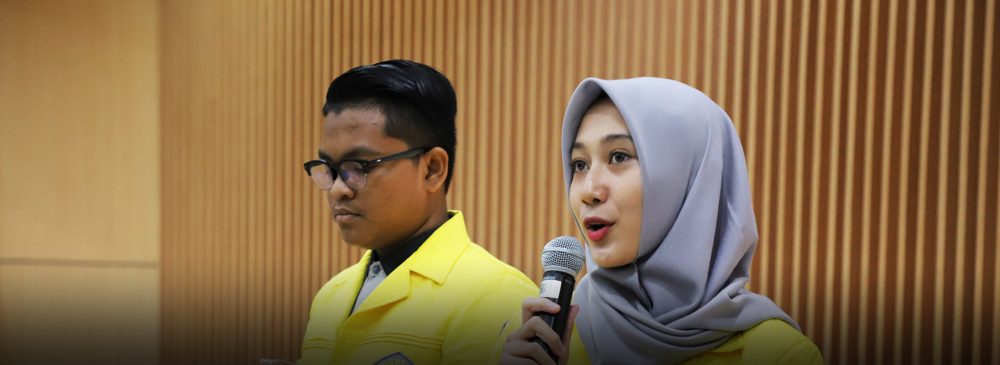
The Postgraduate Economics Program (also known as PPIE) of the Faculty of Economics and Business Universitas Indonesia provides a Doctoral Program in Economics, in accordance with operational permission from SK Dirjen Dikti No. 577/DIKTI/Kep/1993 tentang Pengesahan Penyelenggaraan Program Studi Magister dan Doktor di Universitas Indonesia.
This Doctoral Program in Economics has successfully acquired an extension on its accreditation on the 25th August 2020 from Badan Akreditasi Nasional Perguruan Tinggi (BAN-PT) Furthermore, PPIE’s Doctoral Program in Economics has received an elevation in its accreditation status on 15th December 2020, to a superior accreditation which will be valid until 25th August 2025.
Become a reputable learning center for doctoral Economics Studies domestically and in Asia so that it may contribute to Indonesia’s and the global society’s development.
PPIE FEB UI Doctoral Program students are able to select one concentration or a research cluster that has been adjusted to recent Economics research. The 7 concentrations or research clusters are as follows:
This concentration focuses on the inner workings of the monetary and financial market sector and its relation to the economy as a whole to affect employment opportunities, output, inflation, and the balance of payments, with a main focus on interest and exchange rate setting.
Required Electives: Monetary Economics and Financial Economics
This concentration specially focuses on the effects of resource disparity and consumer preferences between countries and the role on international institutions on a country’s economic activities and tries to explain patterns and consequences stemming from transactions and interactions in the trade sector and inter-country investments that affect the inflow and outflow of goods and services in a country. Required Electives: International Trade and International Finance
This concentration focuses on issues experienced in a region, specifically urban issues, such as density, location, transportation, migration, land use, environment, by using economic studies that focus on spatial dimensions to understand the economic process behind urban and regional planning. Required electives: Regional Economics and Urban Economics
This concentration focuses on the public sector’s role in increasing growth, social welfare, efficiency, and economic equality through income, expenditure, and other policies. Required Electives: Public Economics and Public Finance
This concentration focuses on organisational, industry, and market behaviour to understand topics such as the decisions of production capacity, output and price, product differentiation, investment in research and development activities, industry behaviour shown with regards to the level of competition in the market, and the effects of policies and regulations towards competition levels in the market. Required Electives: Industrial Organisation 1 and Industrial Organisation 2
This concentration focuses on the function and dynamics of the workforce market, especially the paid workforce, by analysing interactions between employees and employers and understanding its relation with wage conditions, job opportunities, and income. Required Electives: Labour Economics 1 and Labour Economics 2
This concentration focuses on the economic aspect in a low-income nation’s development process that is able to increase economic development, growth, structural changes, and improved resident welfare in healthcare and education, with the goal of deciding which development policies and strategies to implement in both the domestic and international levels. Required Electives: Development Economics and Quantitative Analysis for Development Economics.
In accordance with the curriculum that has been set, graduates of the PPIE FEB UI Doctoral Program are to possess the following characteristics:
The study program is carried on in accordance with the UI Rector’s 2021 Regulations. The Doctoral Program in Economics’s curriculum consists of 42 credits in total (excluding the matriculation program), which is broken down into 16 credits received from classes and 26 research credits which are designed for 6 full-time semesters. The maximum duration of this doctoral program is 10 semesters.
The Doctoral Program in Economics consists of 26 credits from faculty-required courses, and 10 credits from required study program courses as well as 6 credits worth of elective courses. Required courses aim to form basic competencies, consisting of Further Macroeconomics Theory, Further Microeconomics Theory, Econometrics 3, dan Philosophy of Study dan Research Methodology. Meanwhile, faculty-required courses are mostly related with research that will produce dissertations and the publication of scientific articles. On the other hand, elective/concentration courses are grouped into main concentrations, which consist of 6 courses (Game theory, Empirical methods for Microeconomics, Empirical Methods for Macroeconomics , Dynamic Economic Modelling, Microeconometrics,and Further Time Series Analysis) dan 7 concentration elective. Each student must select at least 1 main concentration course and 1 concentration elective provided in the 7 concentrations.
Postgraduate Building – FEB UI UI Campus Depok
Phone : +62 21 7888 0746/47, 727 0164
Fax : +62 21 7888 0745
Mobile : +6281 1199 0729
Email : graduate.econ.feb@ui.ac.id
Web : https://ppie.feb.ui.ac.id/
